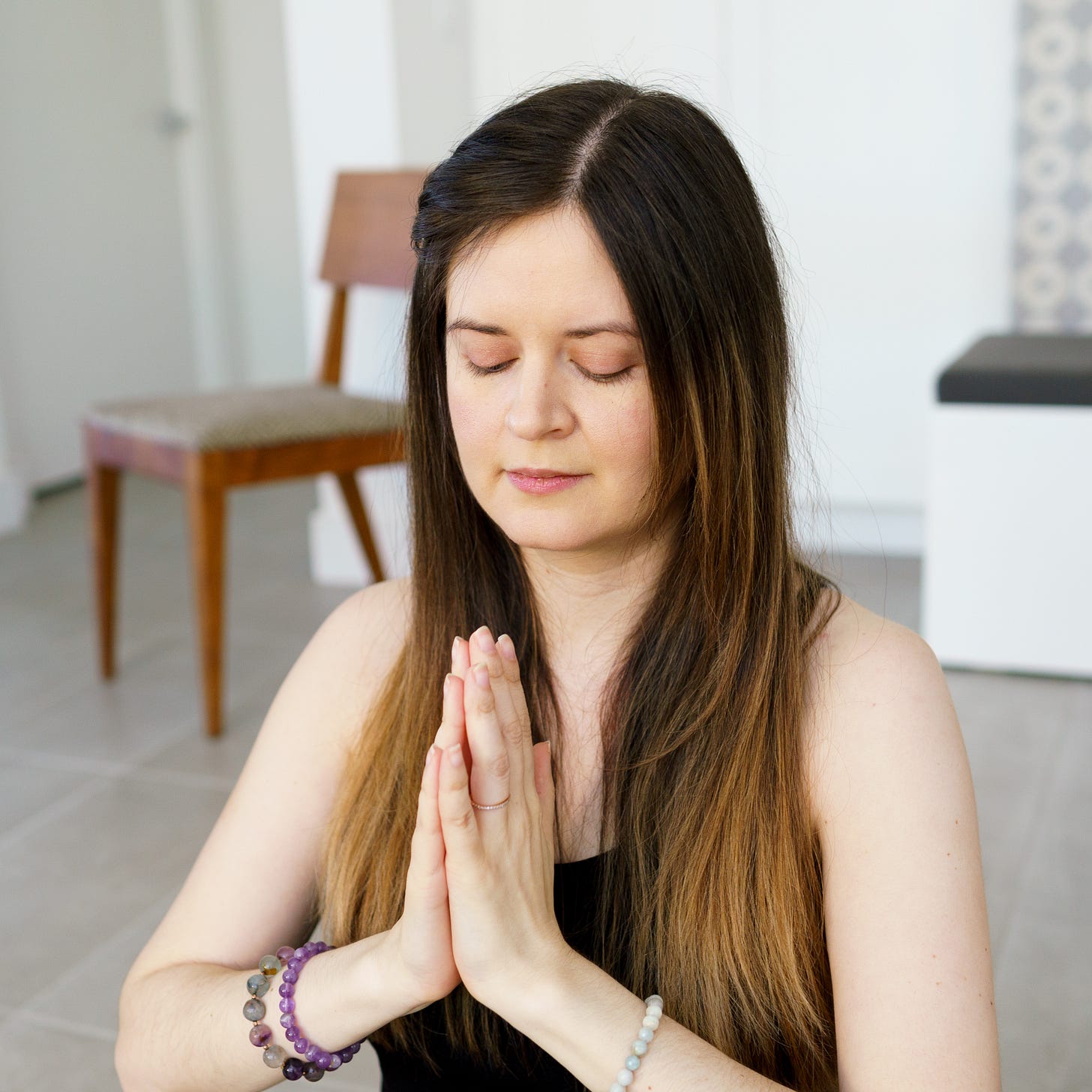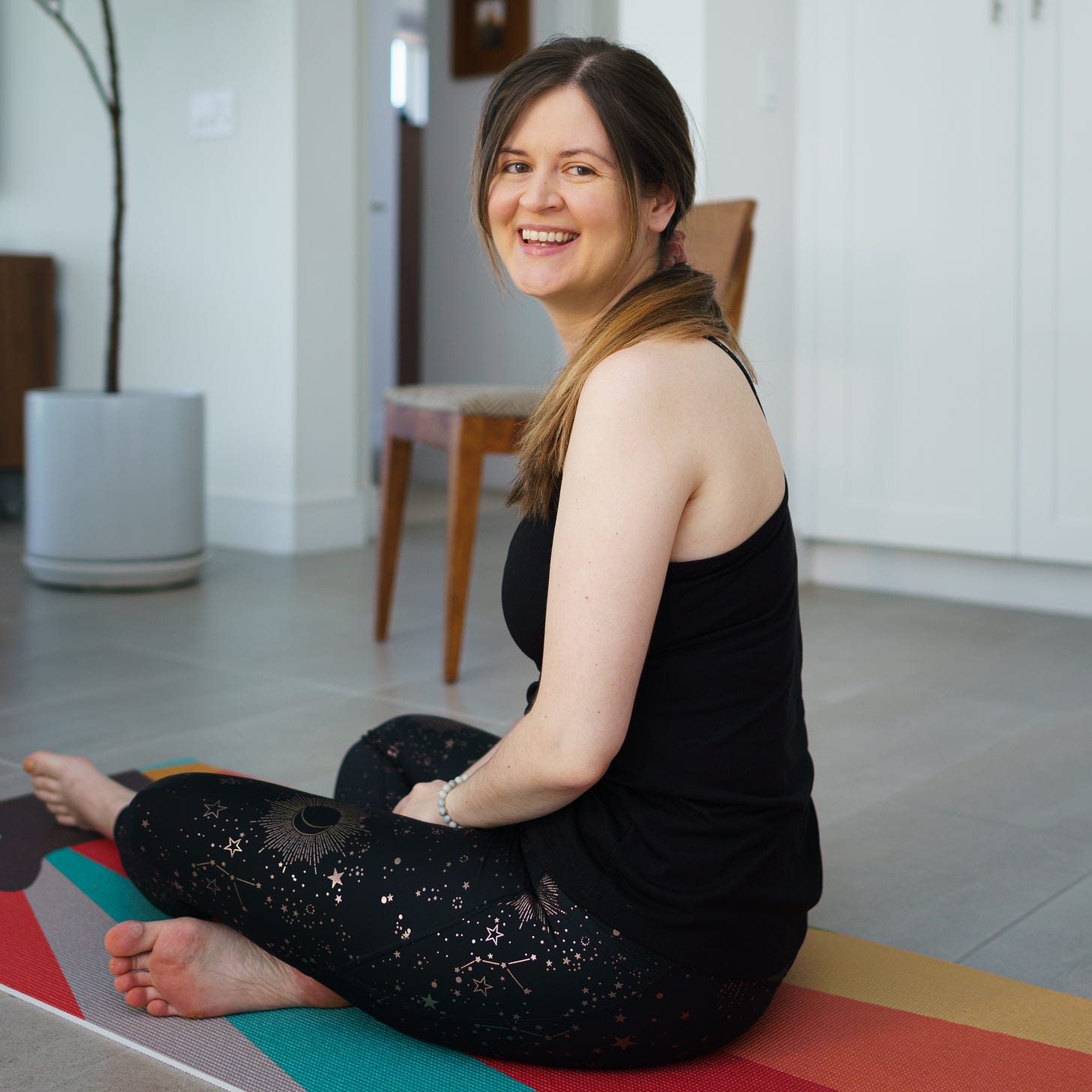Your journal prompts this week:
What is my current relationship with gratitude?
What does a gratitude practice look like to me? What are some practices I’ve tried or currently work with?
What do I think are the benefits of gratitude, and how could it enhance my personal development practices?
What would I like to change about my view/perspective on gratitude, and how might I begin to make this shift?
I have a gratitude problem.
Gratitude and I don’t really have a strong relationship. When I think of my engagement with it, I’m reminded of a term I heard religious people use to describe those who only go to church on Christmas and Easter: "Chreasters.”
I most often give my attention to gratitude around Thanksgiving and Christmas. So I guess this makes me a Thanks-mas-er? I only celebrate Giving-mas? Whatever indicates I’m only a so-so believer, practicing more out of obligation or when it is convenient to do so.
In the past, I’ve admittedly rolled my eyes at gratitude journals and practices and at all the people who decide suddenly in November to tell everyone what they’re so grateful for in daily social media posts.
Confronting My Feelings
My attitude shifted in 2020, after I’d completed my yoga teacher training, when I was asked to lead a Yoga & Journaling class on gratitude. In order to write the class, I wanted to understand how I really felt about the topic. This opened the door for me to uncover the possible roots of my thoughts and feelings about gratitude. Why, exactly, was I so jaded? Or was I perhaps just realistic?
At the time, I was mostly focused on whether forcing gratitude onto ourselves and other people veered into the realm of toxic positivity, allowing us to ignore or bypass real challenges and problems. I pictured someone having a real issue and telling someone else about it, then their reply simply being, “Well you should really focus on just being thankful for everything you already have. If you’re grateful for what you already have, then maybe the universe will give you what you want.”
Shouldn’t we acknowledge that some things ARE hard to deal with? And it’s not like our worry over something just magically goes away because we decide to be thankful for other things instead.
Eventually my line of questioning brought me back to memories from childhood, and my mom’s voice came into my head, very distinct and clear. I heard several variations of the following in response to me expressing my worry-du-jour:
“Just be grateful this is your biggest problem.”
“You know what some people would give for this to be their biggest problem?”
“There are children out there who don’t even have a safe home to live in. They’d love if their biggest worry was a grade on a test.”
Yes, my mom was annoyed, and she quite simply wanted me to stop complaining. My mom was tired of being the one I shared all my worries with, and I had anxiety over many, many things (which I later learned in college was due to having Generalized Anxiety Disorder).
But what she said IS true. My worries and anxieties were—and are—small in comparison to many out there. My mom is a Mexican American woman who grew up in a predominantly white area and her childhood wasn’t easy, and she was reminding me of my privilege. Again, she wasn’t wrong.
But as I now know, having Generalized Anxiety Disorder often leads me to have worries that defy logic and resist any sort of basic reasoning. So, while I am an adult now and don’t have school and tests to stress about, I still stress about a whole lot of other things. When anxiety is your default mode, it’s easy to find the next thing to worry about. (There’s basically a running list in my head at all times.)
And to this day, I’m embarrassed about that because I know most of my problems are concocted in my own head, and there are others confronting much more serious issues.
Giving gratitude a try
Once I realized that many of my feelings around gratitude were rooted in those moments as a kid when I felt ashamed for complaining or worrying about little things, I thought perhaps creating a real gratitude practice would do me some good. Maybe gratitude could help ease some of my worries and anxieties by shifting my focus to the present and away from questions about the future.
I started with daily gratitude journaling. I sat down with my notebook once a day and wrote a list of things and people I was grateful for.
It felt nice to do this for a while.
But not surprisingly, the practice dwindled to every other day, then to once a week, then became non-existent. I found I was writing down the same things on my list every day. I felt like I was doing it mindlessly, out of habit, and that didn’t feel right. It also, admittedly, felt a little boring or trite.
And so I took a big step backward on my progress with gratitude, leaving with the same questions around why I was so resistant to making a regular practice work.
I try to confront my feelings again . . .
I didn’t revisit gratitude again until a couple years later, once again around the time of Thanksgiving. I decided to try what I usually do when I’m confused about something and want to explore it further—I created the thing I needed. I made a short audio journaling course for the Insight Timer app designed to help people explore their feelings around gratitude, and I also shared this practice with my Substack subscribers.
At the time, I was in the first trimester of my second pregnancy and battling daily nausea, so despite taking the time to create the course, my own exploration was, once again, limited and brief.
Though I did add one thing to my daily routine, which was to say a silent “Thank you” prayer to the angels for watching over our family and for keeping us safe, happy, and healthy. I had gotten this idea from a book I’d recently read about working with the angels by Kyle Gray. I still say this little prayer every single night before I fall asleep. It's small, but it is probably the most consistent practice related to gratitude that I’ve ever done.
My present feelings about gratitude
And now I come around to the present day, and why all of this came back up for me to the point that I felt compelled to write and tell you all about it. A few weeks ago, I posted a Note on Substack asking fellow writers how they mentally handle unsubscribes. It was something I wanted to explore my feelings around—why does it sting so much when I see that subscriber number go down?
I received several lovely (and some snarky) responses, but what was the one underlying theme I noticed from those who said unsubscribes did not bother them? Gratitude. They talked about how grateful they were that anyone at all read their work and wanted to read it regularly. To have people cross paths with you for any period of time and read you work is a beautiful thing, they said.
And while all of these comments about gratitude for all the people reading our work felt so nice and encouraging to hear, I found myself feeling embarrassed. I was embarrassed I even made the post and confessed to being what seemed now to be so . . . unevolved and petty. Why was I so focused on the negative, on the losses? And did my focus on what I lost mean I was ungrateful for what was right in front of me—for each and every one of you who happens to be reading or listening right now? Am I, in fact, an ungrateful person?
Of course I’m grateful for you! I felt gratitude when you subscribed. I feel it when you give me a like or leave a comment or just send me an email. It’s not lost on me how amazing it is for my writing to exist in the world, for it to be read and understood by anyone.
But my own insecurity distracts me from staying in this space of gratitude. Clearly, both anxiety and insecurity are gratitude blocks for me, and I keep asking myself: How is that I can have all these wonderful things to be thankful for, and still have so much anxiety and insecurity?
You could show me 10 positive things happening right now, but then my thoughts would spin, and I’d say, “Yeah, but there’s this thing over here that really sucks, so what about that?”
I’ve been working most of this year on getting myself out of this negative default mode, and it has been challenging, but now I’m realizing that gratitude—and my avoidance of it—may have something to do with how hard it has been for me. And clearly, the traditional gratitude practices aren’t quite cutting it.
I need something a bit more balanced, that recognizes the ups and downs of life while also encouraging me to be a bit more positive (and in a genuine way, of course)! I need something that gives me the space and the grace to feel both frustration and gratitude.
And that’s going to require a lot more than just writing a list of what I’m grateful for.
What I need is to feel gratitude in my body. I need to feel it in my heart. I need to see gratitude at work in my day-to-day life. I need to see gratitude in the big things and the small things, in the friends and the foes, in the wins and the challenges.
And I have a feeling I’m not the only one finding gratitude challenging right now. When many of us are sitting in the deep discomfort of intense disagreement and divide, it can be hard to stay out of a mindset of worry for the future and live in gratitude for the present moment.
As with many things I write about, I don’t have all the answers, and I won’t pretend to. Soul Journaling Sessions is about journaling out the thoughts and the feelings to help ourselves find meaning, to help ourselves hear the whispers of guidance from the soul and the higher self. The solutions to our issues with gratitude can only be found within.
An invitation to do a Gratitude Reset
All of this reflection gave me an idea. I want to revisit that gratitude audio journaling course I wrote last year, and this time, I want to spend time going through each day myself, in community with others. I want to invite you all to join me in this exercise, and I’m calling it a “Gratitude Reset.”
This isn’t a pitch to sell you anything—the course already exists for free, open to all, on Substack. But I’m bringing it back this year as a way for us to support each other in our own personal work and exploration.
The course is eight days, and I’ll start it officially on November 25th. Rather than send all of you an email every day for eight days, regardless of whether you want to participate, I’ve created a separate section on Substack for this course. You can then opt into whether you’d like to receive the daily emails. You can do this by heading to your settings: souljournalingsessions.substack.com/account.
Under Notifications, click to turn ON alerts and emails for Gratitude Reset.
If you’re on the Substack app, you’ll see the posts appear in the app each day, and I hope you’ll leave comments there about your progress.
A Special Gift
Again, this is all part of the free Soul Journaling Sessions subscription. But I will be doing a special gift for anyone who completes all eight sessions: one free month of the paid subscription. To show you completed all eight days, just leave a comment on each session’s post with your insights, or you can restack each post on Substack Notes and share your insights there. This will help others who could benefit find the course.
I hope to share with you an updated perspective on gratitude after my deeper exploration. But as we go into this season being bombarded with messages on gratitude, remember it is okay to have less than positive feelings around it. I’m telling this to myself as much as I am to you, but remember your feelings around it are not something to be ashamed of, but rather an invitation to go within and start asking questions. And doing that is never a bad thing.
So don’t ignore it. Don’t run and hide. Instead, let’s tune in and listen.
So tell me . . . how do you REALLY feel about gratitude? I can’t be the only one that has this struggle . . . right?!
With much love and gratitude*,
Marcy
*Ha! Funny to realize now that I sign off of every email with this word! But I do mean it. Thank you for reading and listening.




















